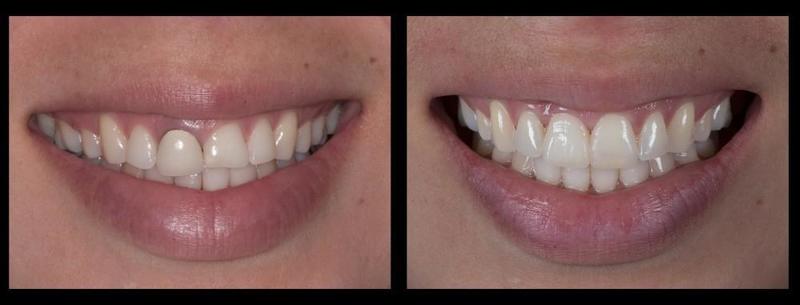

Can You Replace a Dental Implant?
Dental implants are a popular solution for replacing missing teeth. They are a long-term, durable option that provides a natural-looking and functioning tooth replacement. However, there may be instances where a dental implant needs to be replaced. In this article, we will explore the reasons why a dental implant may need to be replaced and discuss the process of replacing a dental implant.
In conclusion, while dental implants are a durable and long-lasting tooth replacement option, there may be instances where a dental implant needs to be replaced. Implant failure, peri-implantitis, and trauma are common reasons for implant replacement. The process of replacing a dental implant involves careful removal, assessment, placement, and attachment of a new implant. Dental implant replacement offers several benefits, including improved functionality, enhanced aesthetics, and the preservation of oral health. If you are considering dental implant replacement, it is essential to consult with a qualified dental professional who can assess your specific situation and provide appropriate treatment options.
Key Takeaways: Can You Replace a Dental Implant?
- Yes, dental implants can be replaced if necessary.
- A dental implant may need to be replaced due to damage, infection, or poor osseointegration.
- Replacing a dental implant involves removing the old implant and placing a new one.
- The success rate of dental implant replacement is high, but it depends on the individual case.
- Regular dental check-ups and proper oral hygiene can help prevent the need for dental implant replacement.
Frequently Asked Questions
Here are some frequently asked questions about dental implants and their replacement:
1. Can a dental implant be replaced?
Yes, it is possible to replace a dental implant. While dental implants are designed to be a long-term solution for missing teeth, there are instances where replacement may be necessary. Some reasons for implant replacement include implant failure, infection, peri-implantitis, or damage to the implant due to trauma.
If you experience any issues with your dental implant, it is important to consult with your dentist or implant specialist. They will assess the situation and determine if replacement is the best course of action. Replacing a dental implant involves removing the existing implant and placing a new one in its place.
2. How often do dental implants need to be replaced?
In general, dental implants are designed to be a long-term solution and can last a lifetime with proper care and maintenance. However, there are cases where dental implants may need to be replaced. The lifespan of a dental implant can depend on various factors, including the patient’s oral hygiene habits, overall health, and the quality of the implant itself.
Regular dental check-ups and maintaining good oral hygiene can help prevent complications that may lead to implant failure or the need for replacement. It is important to follow your dentist’s recommendations for oral care and attend regular dental appointments to ensure the longevity of your dental implant.
3. What are the signs that a dental implant needs to be replaced?
There are several signs that may indicate the need for dental implant replacement. These include:
– Persistent pain or discomfort around the implant site
– Swelling or inflammation of the gums around the implant
– Loosening or movement of the implant
– Infection or abscess around the implant
If you experience any of these symptoms, it is important to seek dental attention promptly. Your dentist will be able to evaluate the implant and determine if replacement is necessary.
4. How much does it cost to replace a dental implant?
The cost of replacing a dental implant can vary depending on various factors, including the complexity of the replacement procedure, the type of implant used, and the individual dentist’s fees. In general, the cost of implant replacement can range from a few hundred to several thousand dollars.
It is important to consult with your dentist or implant specialist to get an accurate estimate of the cost involved in replacing a dental implant. They will be able to provide you with a detailed breakdown of the expenses and discuss any available financing options.
5. Can a dental implant be replaced with a different type?
Yes, it is possible to replace a dental implant with a different type. There are various types of dental implants available, including traditional implants, mini implants, and implant-supported dentures. If you need to replace your existing implant, your dentist will assess your specific needs and recommend the most suitable type of implant for you.
It is important to note that the replacement process may require additional procedures, such as bone grafting or soft tissue augmentation, to ensure the new implant has adequate support and stability. Your dentist will discuss all available options with you and guide you through the replacement process.
Can one replace multiple teeth using Dental Implants? – Dr. Mohammed Fayaz Pasha
Final Summary: Can You Replace a Dental Implant?
Call or Book appointment online
:Ace Dental Care Alpharetta office: 678-562-1555 - Book Now
Ace Dental Care Norcross office: 770-806-1255 - Book Now
Disclaimer
This blog post was generated by artificial intelligence. The content of this post may not be accurate or complete, and should not be relied upon as a substitute for professional advice. If you have any questions about the content of this post, please contact us.
We are constantly working to improve the accuracy and quality of our AI-generated content. However, there may still be errors or inaccuracies. We apologize for any inconvenience this may cause.





